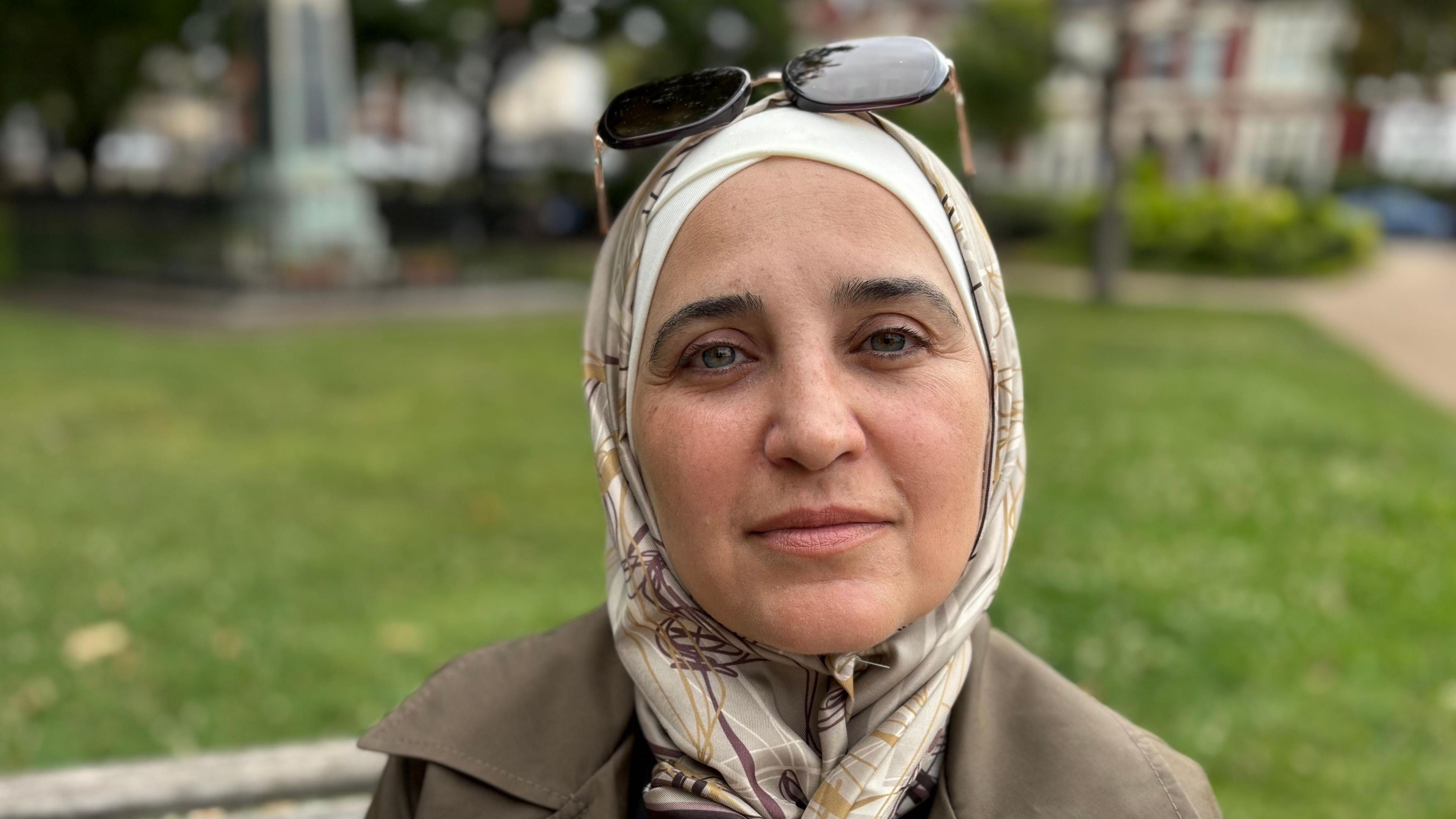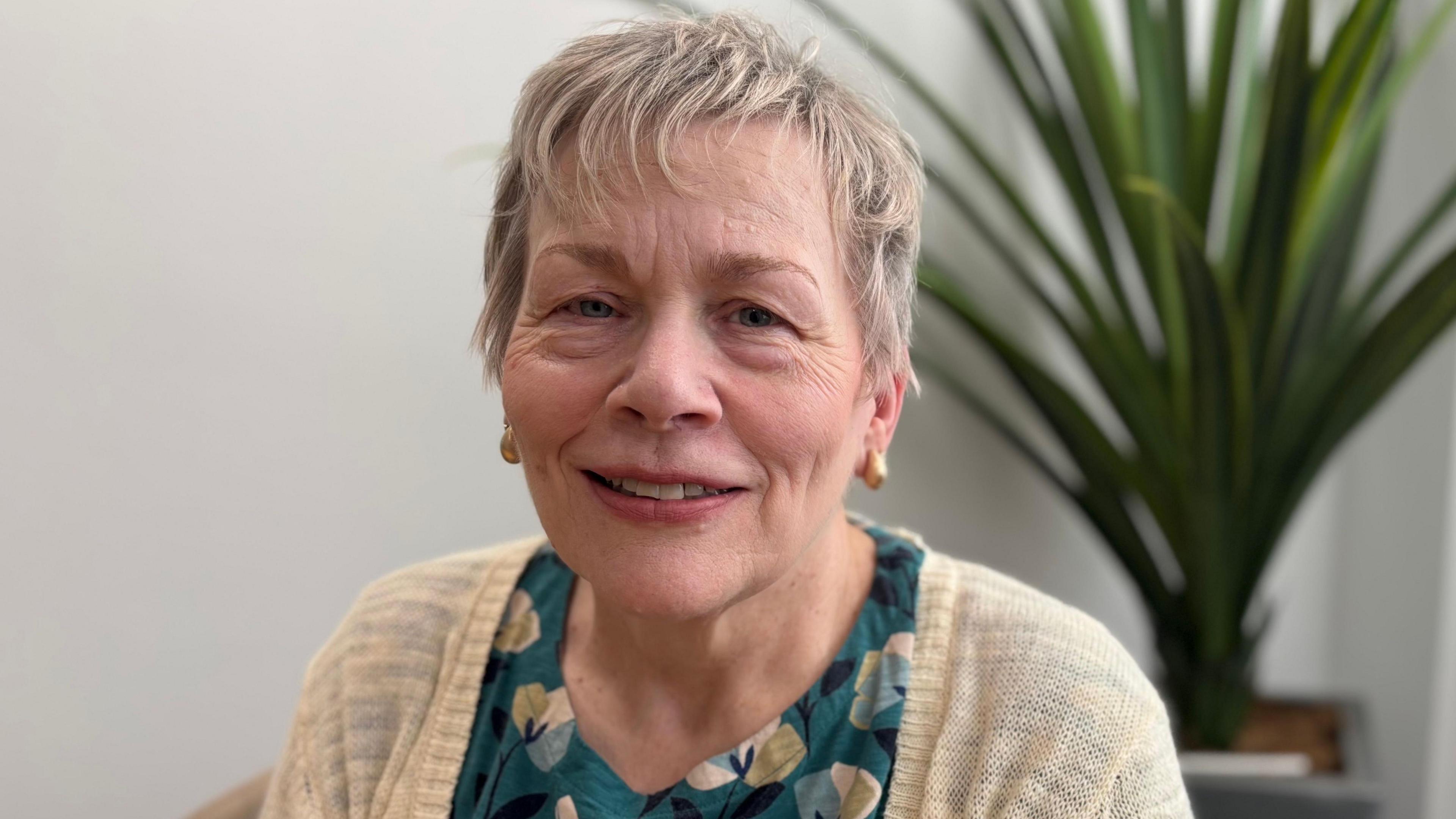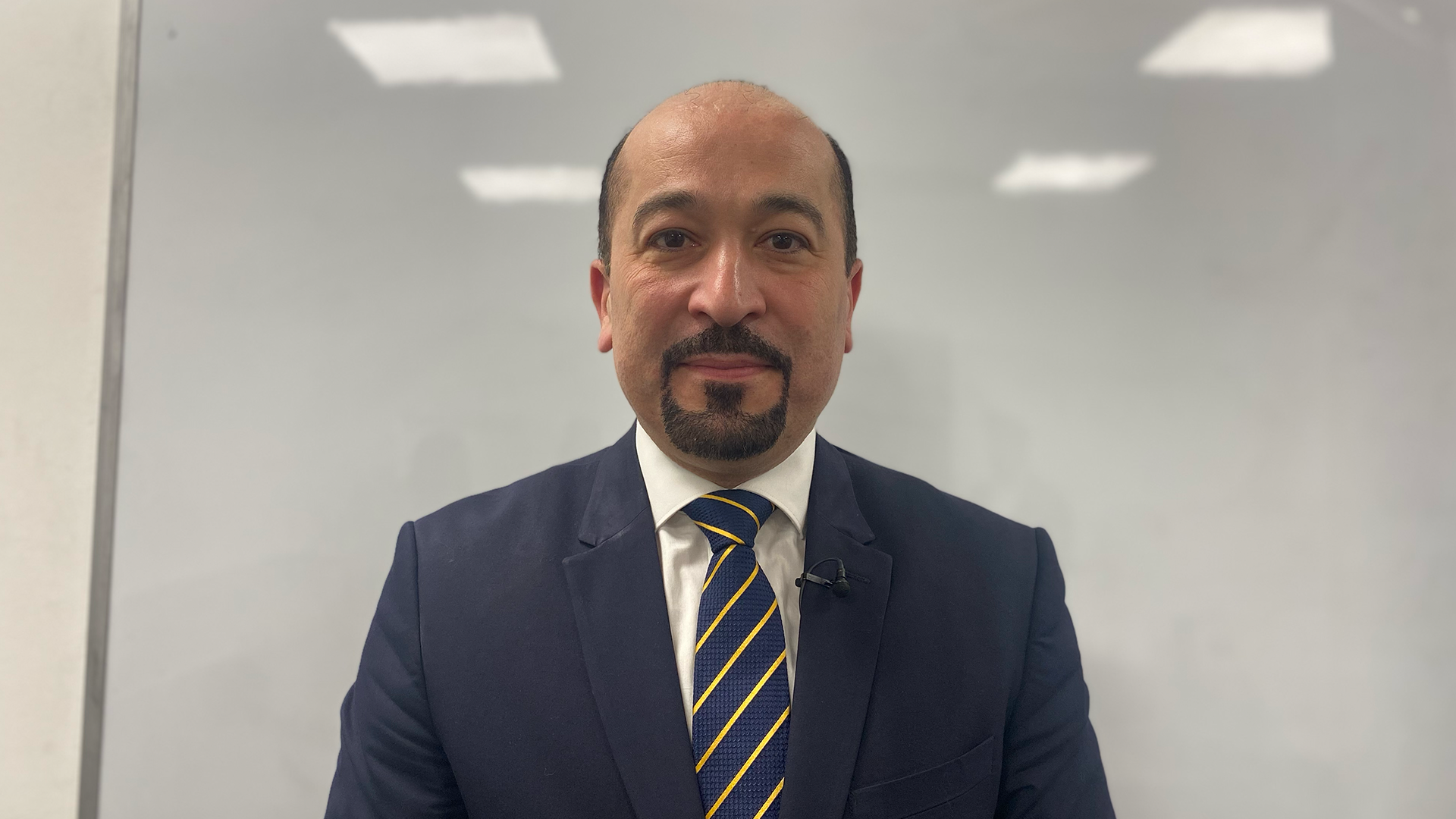Syrian asylum seeker says freeze on claims 'like slowly dying'
Tuka Fattal says this situation is "very difficult" and would not wish it on anyone
- Published
A Syrian woman has said waiting to find out whether she can stay and work in the UK has been like "slowly dying".
The UK government paused Syrian asylum and settlement claims on 9 December, the day after the fall of President Bashar al-Assad.
The Welsh Refugee Council has called on the UK government to begin considering claims again on a "case-by-case" basis.
The Home Office said the events of the past seven months in Syria had "changed the picture when it comes to asylum claims".
In December, Assad's regime was overthrown by a rebel offensive led by the Islamist militant group Hayat Tahrir al-Sham (HTS) in December, after years of civil war.
HTS leader Ahmad al-Sharaa was named as Syria's interim president earlier this year, but the situation remains uncertain and HTS is designated a terrorist group by the UK.
Call for freeze on Syrian asylum claims to end
- Published26 May
Syrian asylum seekers 'terrified' after UK claims paused
- Published11 December 2024
Syrian asylum seekers in limbo as countries stop applications
- Published9 December 2024
According to the UK government figures released last month, external, 7,386 Syrians were waiting for an initial decision on an asylum claim by the end of March.
Tuka Fattal, who moved to the UK from Turkey in September 2024, is one of those people.
The 47-year-old left Syria in 2013 after her husband was arrested, tortured and later released.
Her family moved to Gaziantep in Turkey, where she studied a masters degree and PhD in aerospace engineering, having already worked as an engineer in Syria.
She came to the UK with her husband and the two youngest of her four children, having been accepted to do a PhD at Exeter University, and now lives in Wales.

Syrian national, Tuka Fattal, moved to the UK in September 2024
Tuka had hopes to develop a smart blade design that could be used to increase wind turbine efficiency, but due to some issues with funding she was unable to begin the course on time.
She said she was then advised by some NGOs to apply for asylum.
"We can't go back to Turkey because they cancelled our temporary protection and the situation in Syria is still very unsafe," Tuka said.
Germany, France, Italy, Austria, the Netherlands, Finland, Sweden and Greece have also paused decisions on asylum claims from Syrian nationals.
In December, the Conservatives suggested most Syrian asylum claims were related to the threat posed by Assad's government and that those people could return when it was safe to do so.
The number of Syrian asylum claims fell by 81% after the UK paused decisions.
Tuka feels her two children, who are studying for their GCSEs in Wales, have settled and she would not want to move them again.
"I don't wish this situation on any human," Tuka said. "It's very difficult."
She and her husband have the right to work but she said employers had been uncomfortable about their precarious situation.
She has taken up several volunteering roles and trained as an interpreter to fill her time.
"It's killing us. We feel that we are dying slowly from the psychological side," she said.

Ruth Brown, from Asylum Justice, says the government could have made a different decision when the Assad regime fell in December
Ruth Brown is the legal director of Asylum Justice, a law firm that provides legal advice and representation using charitable grants.
She believes that a "fairer and more compassionate" thing for the government to do would be to offer Syrians in the UK humanitarian protection.
This would mean acknowledging that an individual would be at an indiscriminate risk of "serious harm" if they returned to their country of origin, but would not require clarification of risk due to race, religion, nationality, political opinion or membership of a particular social group.
She added that this would also be a "pragmatic" move, as it would allow for many to be moved out of temporary accommodation.
More than 5,500 Syrians were living in government-funded accommodation at the end of March.
Of these, 2,130 were in hotels, which the government has pledged to stop using for asylum seekers by 2029.

Dr Mohammad Alhadj Ali, chair of the Welsh Refugee Council, says the sanctuary seeking process should be "humane"
The Welsh Refugee Council said it was currently working with 62 asylum seekers from a Syrian background at different stages of their settlement claims.
Chairman Mohammad Alhadj Ali said these clients were living in a state of "limbo" and echoed earlier calls from other UK charities to process claims on a "case-by-case" basis.
"As a nation of sanctuary, we have invested in these cases," he said.
"We have to look at cases with a human eye. They are not only numbers, but dreams and hopes for the future."
While she waits to find out if she and her family can stay in the UK, Tuka is also hopeful that the situation in Syria will improve.
"I believe that everyone wishes to go back to his or her own home eventually," she said.
"But until that time, I want my children to have the basic rights that other children in the whole world have. I want them to feel safe."
The Home Office said: "We know this is an unusual situation, but clearly the events of the last seven months in Syria have changed the picture when it comes to asylum claims.
"Like many other countries, we have therefore paused decisions on all Syrian asylum cases while we wait to see how things evolve in that country.
"We hope to resolve this issue in the near future once the basis on which we can take future asylum decisions is clear."